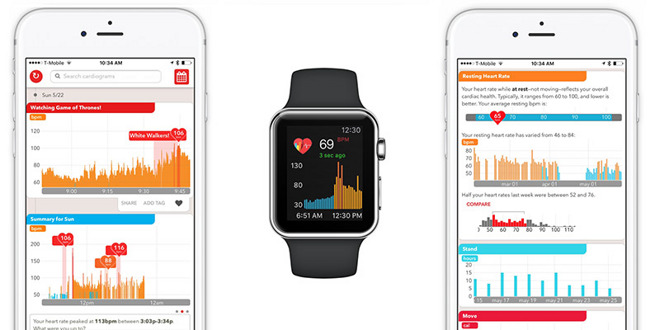Permit me to (re-)introduce myself, LOL.
I haven’t posted since the end of October, because I was totally absorbed in writing The Future is  Smart, my book about IoT strategy, which will be released in August by AMACOM, the publishing wing of the American Management Association. A major theme of the book is that the IoT lifts what I term the condition of “Collective Blindness” that used to plague us before the advent of real-time data from sensors and the analytical software to interpret that data. Collective Blindness meant that we were frequently operating in figurative darkness, having to guess about how things worked or didn’t without direct observational data, which meant that we frequently didn’t learn about problems inside things until after the fact, which could mean costly (and sometimes fatal) corrective maintenance was all that was possible.
Smart, my book about IoT strategy, which will be released in August by AMACOM, the publishing wing of the American Management Association. A major theme of the book is that the IoT lifts what I term the condition of “Collective Blindness” that used to plague us before the advent of real-time data from sensors and the analytical software to interpret that data. Collective Blindness meant that we were frequently operating in figurative darkness, having to guess about how things worked or didn’t without direct observational data, which meant that we frequently didn’t learn about problems inside things until after the fact, which could mean costly (and sometimes fatal) corrective maintenance was all that was possible.
Those “things” unfortunately included the human body.
Usually the only way to uncover a problem inside our bodies pre-IoT was through costly pre-arranged tests at the doctor’s or a hospital. They could only provide a snapshot in time, documenting your body’s state at that precise moment (when, after all, you might be flat on your back wearing a johnny — not exactly representative of your actual condition as you go about your daily routine!). If you had no complaint warranting such a test, the condition might go undiagnosed until it was significantly worse (remember the contrast between prompt predictive maintenance of a jet turbine and costly emergency repairs when a disaster loomed?).
That’s why the news from Brandon Ballinger, the Google alum who was co-founder of the Cardiogram app (get it! I did! and I joined their Artificial Intelligence-driven Health eHeart Study as well!) is so important. In a clinical study released last week, the research team found that the Apple Watch is 85% accurate in detecting diabetes in those previously diagnosed with the disease. The paper was presented at the AAAI Conference on Artificial Intelligence last week in New Orleans.

Results from heart monitoring with Apple Watch and Cardiogram app
The study analyzed data from 14,000 Apple Watch users, finding that 462 participants through the heart rate sensor, the same type of sensor.
The investigation tested a 2015 finding by our famous local Framingham Heart Study that resting heart rate and heart rate variability significantly predicted incident diabetes and hypertension.
According to TechCrunch, Ballinger’s team had previously used the Watch “to detect an abnormal heart rhythm with up to a 97 percent accuracy, sleep apnea with a 90 percent accuracy and hypertension with an 82 percent accuracy when paired with Cardiogram’s AI-based algorithm.”
This is important for several reasons.
We’ve read for several years about single-purpose devices that might be able to diagnose diabetes and determine the need for insulin without painful pinpricks, but the Cardiograph research might show that simply harvesting enough data with a multi-purpose fitness device such as the Watch and being able to interpret it creatively with Artificial Intelligence would be enough. That’s the logical next step with the Health eHeart Study.
It reminds me of the example I’ve mentioned several times before of neonatologists from Toronto’s Hospital for Sick Children and IBM data scientists combining to analyze the huge amount of sensor data harvested from preemies’ bassinettes and being able to diagnose a potentially-lethal neonatal sepsis infection a full day before any visible sign of the infection.
Given these two examples, one must ask, how many other health problems might be diagnosed in their earliest stages, which cures are most likely and least expensive, if routine monitoring through devices such as the Apple Watch become commonplace and the results are crunched with AI? In particular, this could be a key part of my SmartAging concept.
Exciting!
NB: I work part-time for The Apple Store, but am not privy to any strategy or inside information. These opinions are purely my own as an Apple Watch user.